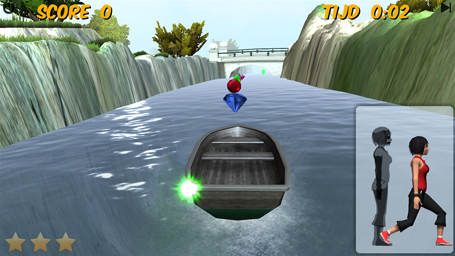Real results in game of recovery
 The world's largest trial of computer games for stroke rehabilitation is underway at Australian hospitals.
The world's largest trial of computer games for stroke rehabilitation is underway at Australian hospitals.
The games are being tested as ways to boost independence for patients recovering from a stroke, brain injury and conditions like amputations.
The three-year, $1.3 million National Health and Medical Research Council project is underway at hospitals in Sydney and Adelaide.
Researcher Professor Cathie Sherrington from the University of Sydney says a range of technologies are being put to the test.
“There's quite a lot of diversity in the range of problems that people experience after a stroke or a brain injury,” she told the ABC.
“So it's likely that different technologies will be more suited to different individuals.”
Dr Leanne Hassett, a Research Fellow at the George Institute, told reporters that the games include some commercially available titles for Xbox and Nintendo Wii.
“Then we have some that have been developed specifically for rehabilitation that are a similar sort of ‘exer-gaming’ type technologies,” she said.
“And then we have a stepping tile system which was developed specifically for the trial.”
Computer programs, such as 'FysioGaming' from the Netherlands, are specifically tailored for stroke survivors to re-master basic skills.
It adds visual graphics and a reward system for patients who complete tasks like stepping to the side or walking forwards.
About 300 people are expected to take part in the trials over the next two years.
The team behind it says it will only lead to lasting results if patients have a something they can do at home.
The technologies being tested range in cost up to about $3,000.
When the project is closer to conclusion, an economist will examine the cost-effectiveness of each model.
Researchers will also follow the patients for six months, to find out how effective the technology is for boosting independence during hospital rehabilitation and at home.








 Print
Print